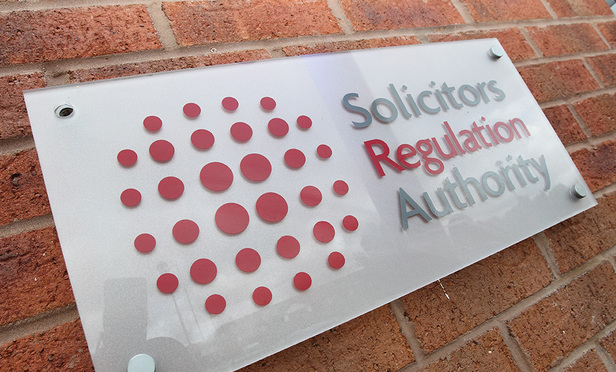MPs call for 'serious sanctions' for NDA misuse and sexual harassment by lawyers
Parliamentary committee urges SRA crackdown on harassment among legal profession
July 25, 2018 at 10:09 AM
4 minute read
Lawyers who misuse non-disclosure agreements (NDAs) to silence sexual harassment victims should face "serious sanctions", according to a parliamentary report which has called on the Solicitors Regulation Authority (SRA) to take more stringent measures regarding harassment in the legal profession.
The report, published by the Women and Equalities Committee today (25 July), follows an inquiry by the committee into sexual harassment in the workplace, which saw the regulatory regime around such incidents placed under the microscope.
The committee, which is chaired by Maria Miller MP, urges the SRA to demonstrate that members of the legal profession will face serious sanctions "if they sexually harass clients or colleagues or if they misuse NDAs to silence victims of sexual harassment".
The use of NDAs in such cases has been scrutinised by the committee in the wake of a series of revelations, including Allen & Overy's (A&O's) role on a historic settlement involving disgraced movie producer Harvey Weinstein.
A&O advised Miramax – which Weinstein co-founded – in 1998 when the producer's then-assistant Zelda Perkins accused him of sexual harassment, and this March Perkins told the committee that she believed the NDA drawn up by A&O was "morally lacking" on every level.
The report states: "We have heard deplorable examples of how NDAs have been used to threaten, bully and silence victims of sexual harassment. Shockingly, this unethical treatment has, in some cases, been facilitated by members of the legal profession."
It highlights the Perkins NDA – as well as those signed by hostesses at the controversial Presidents Club dinner – as examples of how NDAs "can be used unethically and potentially unlawfully".
The Perkins case thrust the legal profession's use of NDAs into the spotlight, with A&O employment partner Mark Mansell – who took a lead role on the negotiations with Perkins – questioned by the committee earlier this year.
The committee's report added that it was "particularly disappointed" by an "apparent lack of rigour" in the SRA's investigation into potential unethical practice by the lawyers involved in the Perkins case, given that the SRA spoke to A&O's compliance officer in November 2017 but took no further action until April 2018.
As a result of the committee's inquiry, the Ministry of Justice is now looking at the existing legal framework surrounding NDA use, while the Department for Business, Energy and Industrial Strategy is examining whether there are any gaps in employment law relating to NDAs.
The report adds: "Use of provisions in confidentiality agreements that can reasonably be regarded as potentially unenforceable should be clearly understood to be a professional disciplinary offence for lawyers advising on such agreements."
An SRA spokesperson said: "We continue to work actively with the firms to ensure that they are fully aware of their obligations to always do the right thing in these areas, both for any employees who come forward with concerns, and in terms of reporting issues to the SRA.
"Firms, the police or regulators can only act if we are made aware of a problem. We would therefore urge anyone who is aware of a potential issue to come forward and report their concerns. We will look into concerns about harassment and take the necessary steps to tackle the issues, including appropriate disciplinary action."
The committee's report also includes the recommendation that whistleblowing protections should be extended to include those making disclosures to all regulators, including the SRA, and to any court or tribunal.
Michael Burd, chair of employment specialist firm Lewis Silkin, said that he thought the committee's recommendations were more balanced than he had previously feared "An outright ban on NDAs could have had unintended consequences, not least for victims," he said. "They appear to have taken that on board."
However, he questioned the report's recommendation for the adoption of standard, approved confidentiality clauses, adding: "What they intend may be that the requirements for such clauses include a provision stating that nothing should prevent a victim from reporting to law enforcement authorities, which makes sense, but I'm not sure how workable imposing standard wording for the whole of such clauses would be."
A number of major law firms have been rocked by sexual assault and harassment scandals this year, in the wake of the global #MeToo movement.
The SRA has been looking into Baker McKenzie's handling of a historic sexual harassment allegation involving an unnamed senior partner who has since left the firm, while Quinn Emanuel Urquhart & Sullivan referred itself to the regulator in response to allegations of inappropriate behaviour by now-dismissed City litigation partner Mark Hastings.
This content has been archived. It is available through our partners, LexisNexis® and Bloomberg Law.
To view this content, please continue to their sites.
Not a Lexis Subscriber?
Subscribe Now
Not a Bloomberg Law Subscriber?
Subscribe Now
NOT FOR REPRINT
© 2025 ALM Global, LLC, All Rights Reserved. Request academic re-use from www.copyright.com. All other uses, submit a request to [email protected]. For more information visit Asset & Logo Licensing.
You Might Like
View All

Jones Day, BCLP & Other Major Firms Boost European Teams with Key Partner Hires
4 minute read
$13.8 Billion Magomedov Claim Thrown Out by UK High Court
Trending Stories
- 1South Florida Attorney Charged With Aggravated Battery After Incident in Prime Rib Line
- 2'A Death Sentence for TikTok'?: Litigators and Experts Weigh Impact of Potential Ban on Creators and Data Privacy
- 3Bribery Case Against Former Lt. Gov. Brian Benjamin Is Dropped
- 4‘Extremely Disturbing’: AI Firms Face Class Action by ‘Taskers’ Exposed to Traumatic Content
- 5State Appeals Court Revives BraunHagey Lawsuit Alleging $4.2M Unlawful Wire to China
Who Got The Work
J. Brugh Lower of Gibbons has entered an appearance for industrial equipment supplier Devco Corporation in a pending trademark infringement lawsuit. The suit, accusing the defendant of selling knock-off Graco products, was filed Dec. 18 in New Jersey District Court by Rivkin Radler on behalf of Graco Inc. and Graco Minnesota. The case, assigned to U.S. District Judge Zahid N. Quraishi, is 3:24-cv-11294, Graco Inc. et al v. Devco Corporation.
Who Got The Work
Rebecca Maller-Stein and Kent A. Yalowitz of Arnold & Porter Kaye Scholer have entered their appearances for Hanaco Venture Capital and its executives, Lior Prosor and David Frankel, in a pending securities lawsuit. The action, filed on Dec. 24 in New York Southern District Court by Zell, Aron & Co. on behalf of Goldeneye Advisors, accuses the defendants of negligently and fraudulently managing the plaintiff's $1 million investment. The case, assigned to U.S. District Judge Vernon S. Broderick, is 1:24-cv-09918, Goldeneye Advisors, LLC v. Hanaco Venture Capital, Ltd. et al.
Who Got The Work
Attorneys from A&O Shearman has stepped in as defense counsel for Toronto-Dominion Bank and other defendants in a pending securities class action. The suit, filed Dec. 11 in New York Southern District Court by Bleichmar Fonti & Auld, accuses the defendants of concealing the bank's 'pervasive' deficiencies in regards to its compliance with the Bank Secrecy Act and the quality of its anti-money laundering controls. The case, assigned to U.S. District Judge Arun Subramanian, is 1:24-cv-09445, Gonzalez v. The Toronto-Dominion Bank et al.
Who Got The Work
Crown Castle International, a Pennsylvania company providing shared communications infrastructure, has turned to Luke D. Wolf of Gordon Rees Scully Mansukhani to fend off a pending breach-of-contract lawsuit. The court action, filed Nov. 25 in Michigan Eastern District Court by Hooper Hathaway PC on behalf of The Town Residences LLC, accuses Crown Castle of failing to transfer approximately $30,000 in utility payments from T-Mobile in breach of a roof-top lease and assignment agreement. The case, assigned to U.S. District Judge Susan K. Declercq, is 2:24-cv-13131, The Town Residences LLC v. T-Mobile US, Inc. et al.
Who Got The Work
Wilfred P. Coronato and Daniel M. Schwartz of McCarter & English have stepped in as defense counsel to Electrolux Home Products Inc. in a pending product liability lawsuit. The court action, filed Nov. 26 in New York Eastern District Court by Poulos Lopiccolo PC and Nagel Rice LLP on behalf of David Stern, alleges that the defendant's refrigerators’ drawers and shelving repeatedly break and fall apart within months after purchase. The case, assigned to U.S. District Judge Joan M. Azrack, is 2:24-cv-08204, Stern v. Electrolux Home Products, Inc.
Featured Firms
Law Offices of Gary Martin Hays & Associates, P.C.
(470) 294-1674
Law Offices of Mark E. Salomone
(857) 444-6468
Smith & Hassler
(713) 739-1250










